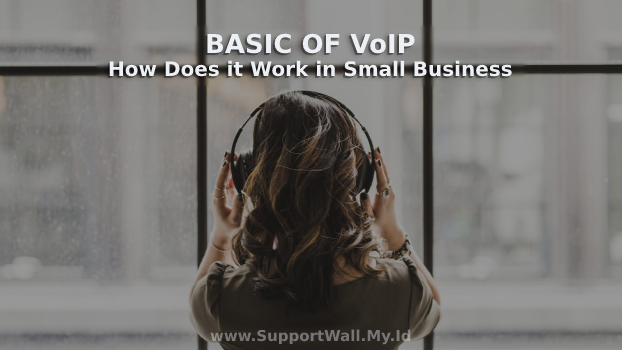The world has seen a major shift in the way we communicate thanks to technological advancements basics of VoIP.
Internet Protocol (VoIP) is one of the innovations that have changed the way we communicate in recent years.
In this article, we’ll explore the basics of VoIP, including what it is, how it works, and its benefits.
What is Basics of VoIP?
VoIP stands for Voice over Internet Protocol It’s a technology that allows you to make voice calls over the Internet instead of traditional phone lines.
With VoIP, voice signals are converts into digital packets. And sent over the Internet to the recipient.
This eliminates the need for traditional telephone lines and enables more efficient and cost-effective communication.
VoIP stands for Voice over Internet Protocol, a technology that allows individuals to make voice calls over the Internet instead of using traditional phone lines.
VoIP allows voice signals to be digitized, compressed, and sent over the Internet as data packets to recipients.
When the packets are received, they are reconstructed into an audio signal that the receiver can hear.
VoIP has grown in popularity in recent years because it can provide more efficient and cheaper communication Instead of relying on traditional telephone lines, which are expensive and require constant maintenance.
VoIP calls rely on an Internet connection, making them a more flexible and accessible communication option.
Then, VoIP also offers several features not available in traditional phone systems, such as call forwarding, voicemail, and conference calls.
Also Read: Best VoIP Services for Small Business
How Does VoIP Work?
VoIP technology converts analog voice signals into digital data. That can be sent over the Internet. This process is called “digitization“. When the voice signal is digitized, it is compresses and broken down into smaller data packets.
These packets are sent over the Internet to their recipients. At the receiver, the packets are reassembled into an audio signal that the receiver can hear.
To make a VoIP call, you need a few things. First, an internet connection is required as VoIP calls rely on an internet connection rather than a traditional phone line. Next, you need a device that can make VoIP calls.
This can be a smartphone, tablet, laptop, or desktop computer Finally, you need a VoIP service provider This is a company that provides the infrastructure and software needed for VoIP calling.
VoIP (Voice over Internet Protocol) converts analog audio signals into digital data that can be sent over the Internet. The data is then received by a receiver and converted into an audible audio signal.
When you make a VoIP call, your device’s voice signal is converted into digital data and split into smaller packets.
Each packet is then sent over the Internet to the recipient’s device. A packet may take different routes and be sent through different servers before reaching its destination.
When the packets reach the recipient’s device, they are reassembled into an audible audio signal. This process is called packet switching and is a key element of VoIP technology.
VoIP has several advantages over traditional telephone systems For example, he can make VoIP calls from anywhere with an internet connection, making it a more flexible and accessible communication option.
VoIP also provides features not available in traditional phone systems, such as call forwarding, voicemail, and conference calls.
FAQs About Basics of VoIP
VoIP calls can be secure if appropriate measures are taken. This includes using encryption to protect call data and securing the network against potential threats.
Yes, in many cases you can transfer your existing phone numbers to your VoIP service provider This is called number porting
Yes, you can use VoIP to make emergency calls. However, it’s important to note that VoIP calls are not always as reliable as traditional phone calls, especially in the event of power outages or Internet disruptions.
Conclusion
When the packets reach the recipient’s device, they are reassembled into an audible audio signal. This process is called packet switching and is a key element of VoIP technology
VoIP has several advantages over traditional telephone systems For example, he can make VoIP calls from anywhere with an internet connection, making it a more flexible and accessible communication option.
Then, VoIP also provides features not available in traditional phone systems, such as call forwarding, voicemail, and conference calls.
VoIP technology revolutionizes the way we communicate, offering a cheaper, more flexible, and more efficient alternative to traditional telephone systems.
By converting analog voice signals into digital data, VoIP enables voice calls over the Internet from anywhere in the world With so many benefits, it’s no wonder .
Basics of VoIP is becoming the preferred choice for businesses and individuals.
